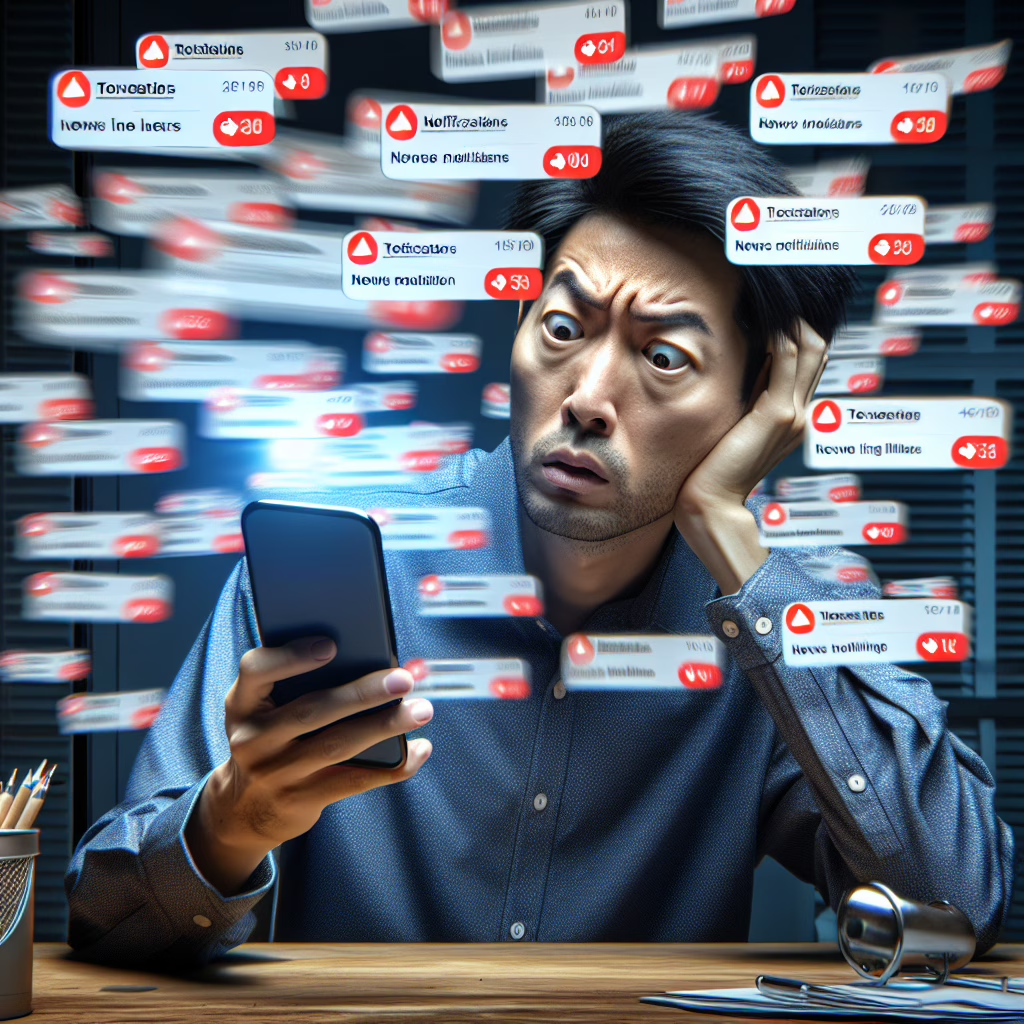In a world where news alerts ping like popcorn in a microwave, it’s time to pause and ponder: are they helping us stay informed, or are they just adding to our daily dose of anxiety? A recent study by Reuters has put this very question under the microscope, and the findings might just encourage you to hit that snooze button on your notifications. The implications for mental health are significant, revealing just how interconnected our digital consumption is with our emotional well-being.
Understanding the News Alert Phenomenon
Let’s face it—news alerts have become the persistent buzzing flies at a picnic. They’re everywhere, and they seem to have an uncanny ability to distract us at the most inconvenient times. While the intention behind these alerts is noble—keeping you updated on everything from celebrity escapades to global crises—the reality is often a cacophony of noise that can leave you feeling frazzled.
The Reuters study reveals that nearly half of people who receive news alerts feel overwhelmed by them. This isn’t just a casual annoyance; it’s impacting our mental health. In fact, a staggering 30% of respondents reported feeling anxious or stressed due to the incessant barrage of notifications. So, if you’ve ever found yourself wondering why you’re more jittery than a squirrel on espresso, those news alerts might be part of the problem.
How News Alerts Affect Your Productivity
Imagine trying to focus on an important task when suddenly your phone vibrates with yet another breaking news alert. It’s like trying to read a book in a crowded café where someone keeps yelling about the latest sports score. According to the study, this distraction can lead to decreased productivity and increased frustration.
- Every time we check our phones due to an alert, it takes an average of 23 minutes to regain our train of thought.
- Frequent interruptions can lead to a drop in work quality and efficiency.
That’s right—23 minutes! If you’re aiming for peak productivity, consider treating your phone like a hot stove: avoid touching it unless absolutely necessary.
The Silver Lining: Curating Your Notifications
Now before you start smashing your phone in frustration, let’s talk solutions! The good news is that you can take control of your digital life. Start by reviewing your notification settings. Most devices allow you to customize which apps can send you alerts. By curating your notifications, you can transform your phone from a relentless news ticker into a more manageable source of information.
Consider prioritizing alerts that truly matter to you. For instance, if you’re an avid follower of world events but couldn’t care less about celebrity gossip, adjust your settings accordingly. This way, when your phone buzzes, it’ll be worth paying attention to instead of another “breaking” news story about who wore what at last night’s awards show.
The Mental Health Aspect
It’s not just about productivity; mental health plays a crucial role in how we interact with news alerts. The Reuters study indicates that individuals who limit their exposure to constant notifications report feeling less anxious and more in control of their lives. Imagine waking up each day without the dread of seeing how many disasters occurred overnight!
- Engaging in digital detoxes or scheduled breaks from notifications can work wonders for your peace of mind.
- Try setting specific times during the day when you check for updates.
A Call to Action: Join the Notification Revolution!
So, what’s the takeaway here? It’s simple: less is more! By disabling or reducing unnecessary news alerts, you can reclaim precious moments for creativity, mindfulness, or simply enjoying that second cup of coffee in peace.
If we all took a little time to fine-tune our notification preferences, we could collectively lower our anxiety levels—one buzz at a time! So go ahead and take that leap; disable those pesky alerts and see how much brighter your day becomes.
What do you think? Are news alerts more helpful than harmful? Or have they turned into digital mosquitoes buzzing around your sanity? Share your thoughts below!
A special thanks to CNN for their insightful article that inspired this piece! If you want to read more about related digital distractions, check out our article on the iPad’s evolution towards becoming a Mac and how digital integration can enhance productivity.

